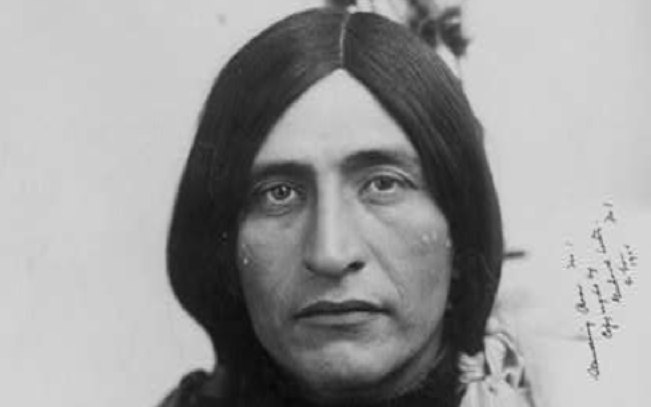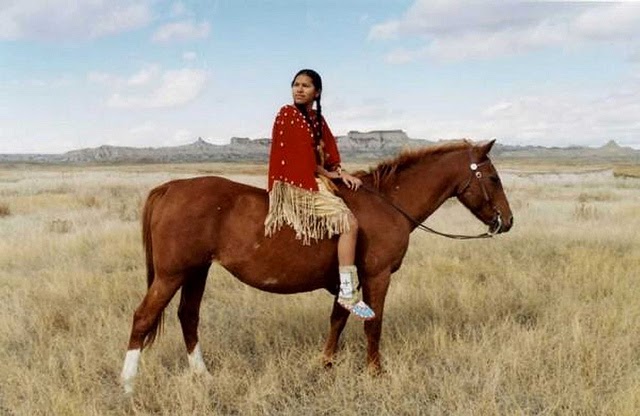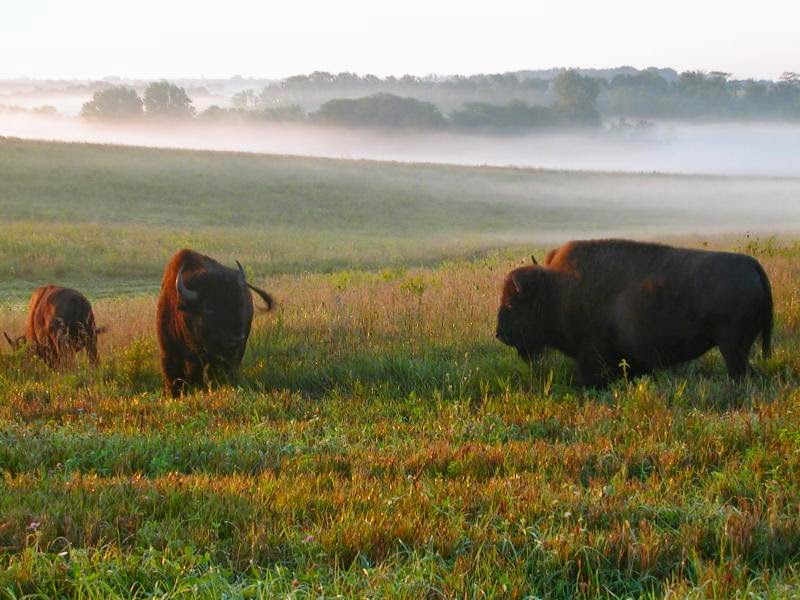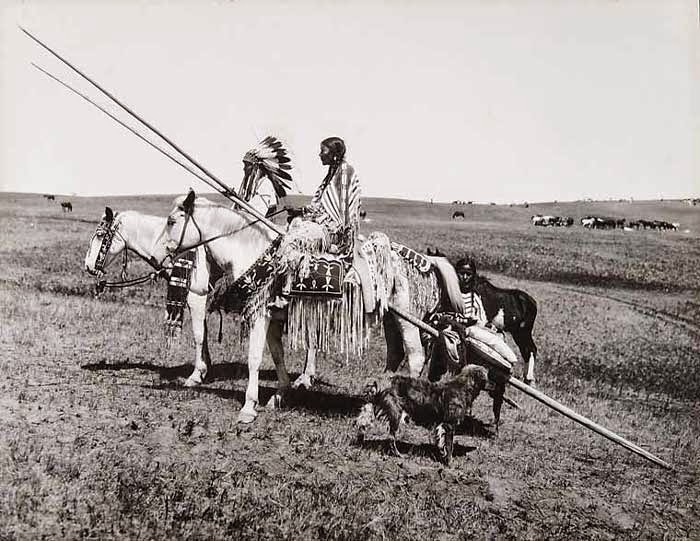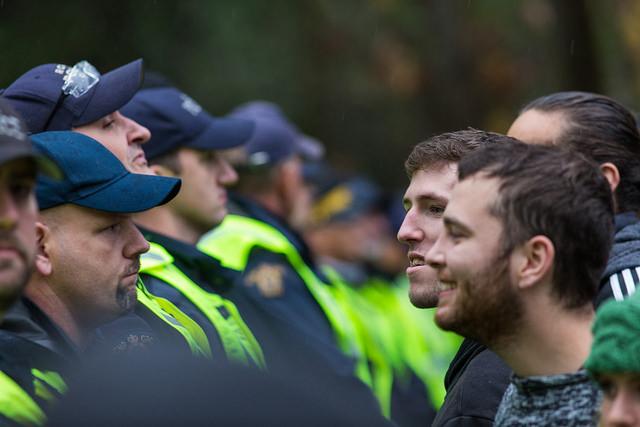The federal government’s anti-terrorism bill C-51 was the subject of heated parliamentary debate recently after revelations that the RCMP characterized pipeline opponents and First Nations as “violent anti-petroleum extremists” in a leaked internal intelligence report.
NDP environment critic Megan Leslie argued the leaked RCMP document, which labeled Canada’s environment movement as “a growing and violent threat to Canada’s security,” displays precisely how bill C-51 could be used to deploy anti-terrorism legislation against environmental activism deemed to be “unlawful.”
Because protests carried out without proper municipal permits can be deemed “unlawful” the proposed bill has serious implications for environmental and aboriginal groups, Leslie said.
“A lot hinges on that word ‘unlawful,’ ” she said during a recent question period in parliament.
“This is dangerous legislation, because if there is a wildcat strike or an occupy movement – an occupation of town property, such as the camps that we saw set up – that activity, under the eyes of CSIS or the current government, could potentially undermine the security of Canada without the right municipal permit, and it could all of a sudden be scooped up into this anti-terrorism legislation.”
“Every single word here matters,” Leslie said.
“Unlawful” Protest Potentially Deemed Terrorism in Bill C-51
In her argument, Leslie pointed to a recent analysis of the bill performed by Craig Forcese, national security expert and associate professor of law at the University of Ottawa.
In a recent piece Forcese agreed that even though the bill does not target democratic protest, there is room in the bill to pull participants of protest into the gambit of “security concerns.”
“Under C-51,” he writes, ”the government will be able to share internally (and potentially externally) a lot more information about things that ‘undermine the security of Canada.’ That concept is defined extremely broadly – more broadly than any other national security concept in Canadian law. Yes, it can reach the subject matter of many democratic protest movements.”
Forcese also pointed to the fact that previous governments have avoided the dangers of limiting legitimate civil dissent to only “lawful” protest.
In fact, he writes, the very concerns raised in parliament now were on the table back in 2001 when the government first introduced a definition of “terrorist activity” in the original Antiterrorism Act.
The Act excluded “lawful” protest from the definition of terrorism but the term was eventually removed because of the undemocratic danger it posed to strikes and unpermitted protests.
“Given the experience in 2001 and the legal views expressed by the government of the day, we have to conclude that if the government continues to include the qualifier ‘lawful’ in its exceptions, it does so with its eyes wide open,” he writes.
Forcese warns that where protests deemed ‘unlawful’ overlap with other security concerns, such as critical infrastructure including pipelines, “democratic protest movements with tactics that do no square in every way with even municipal law may properly be the subject of CSIS investigation and possibly even disruption.”
He adds, “my point is this: when we craft national security law, we craft it to deter bad judgment. We do not craft it to be so sweeping and ambiguous that it must depend for its proper exercise in a democracy on perfect government judgment. Very few governments are perfect. And even if you think this one is, what about the next one?”
Anti-Terrorism Bill Targets More Than Just Terrorists
An editorial in the Globe and Mail also pointed to the danger of bill C-51, arguing the legislation does “much more than fight terrorism.”
The bill targets “activity that undermines the sovereignty, security or territorial integrity of Canada,” that includes “terrorism,” “interference with critical infrastructure” and “interference with the capability of the Government in relation to…the economic or financial stability of Canada.”
The authors of the editorial argue the new legislation creates another “class of security-underminer” that has implications for “environmental activists denounced as radicals.”
“If Bill C-51 passes, CSIS will be able to disrupt anything its political masters believe might be a threat,” they write.
Criminalizing Indigenous Dissent
NDP MP Niki Ashton said the bill is a clear attempt to “criminalize dissent.”
“As we know, indigenous peoples – First Nations, Métis, Inuit, or indigenous peoples in general – have often been at the forefront in fighting for what is important to them and, in many ways, what is important to all of us,” she said during question period.
“These activists, these leaders, these members of their communities are not terrorists and do not pose a danger to the lives of anyone.”
The problem with the legislation is clear, Ashton said, “it lumps legitimate dissent together with terrorism. Indigenous peoples have a right to seek environmental and social justice through protest, communication and activism. This bill would call that criminal. It would call that work terrorism.”
Ashton quoted Pam Palmater, a Mi’kmaq lawyer and activist with the Idle No More movement.
Palmater said Canadians and First Nations “as treaty and territorial allies” face a “threat to our collective future” with the breakdown in democracy and radical changes to Canada’s legislative landscape that have eliminated many of the nation’s environmental laws.
“Hundreds of thousands of people across Canada rose up against Bill C-45 – the large, unconstitutional omnibus bill pushed through Parliament without debate which threatened our lakes and rivers,” Palmater said.
“This time, the threat is personal – any one of us could go to jail for thinking or voicing our opinions. All of the rights, freedoms and liberties upon which Canadian democracy rests will be suspended with Bill C-51. This bill creates what has been described as Harper’s ‘Secret Police force’ with terrifying expanded powers.”
Ashton said she is “uncomfortable in principle and in practice with any one government body having this kind of unchecked control.” Ashton said under Bill C-51 CSIS will have the power to “surveil and target anyone they want.”
“Indigenous and environmental activists are afraid about what that could mean when they organize to protest a pipelines, when they communicate among themselves to reclaim territory that is theirs, and when they speak out in defence against the government in any way, which is their right to do.”
Indigenous rights and climate activist Clayton Thomas-Muller said the bill “is an abuse of democracy.”
“Our movements are about justice. To criminalize Indigenous dissent, then, is to repress Indigenous rights in Canada, and our responsibilities to protect the land.”
“We are transparent, open, base-driven movements that take a non-violent, peaceful direct action approach…The state is criminalizing Indigenous peoples who are acting within their right to exercise jurisdiction over their lands.”
“It is clearly about providing a right-of-way for the mining and energy sector,” he said. SOURCE
RELATED:
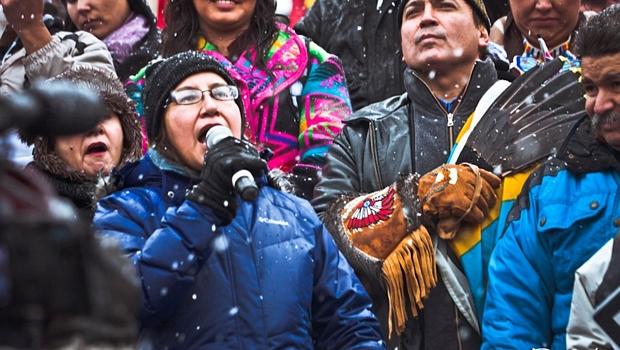
 The book is published by Purich Publishing, and includes a glossary of Cree words.
The book is published by Purich Publishing, and includes a glossary of Cree words.
